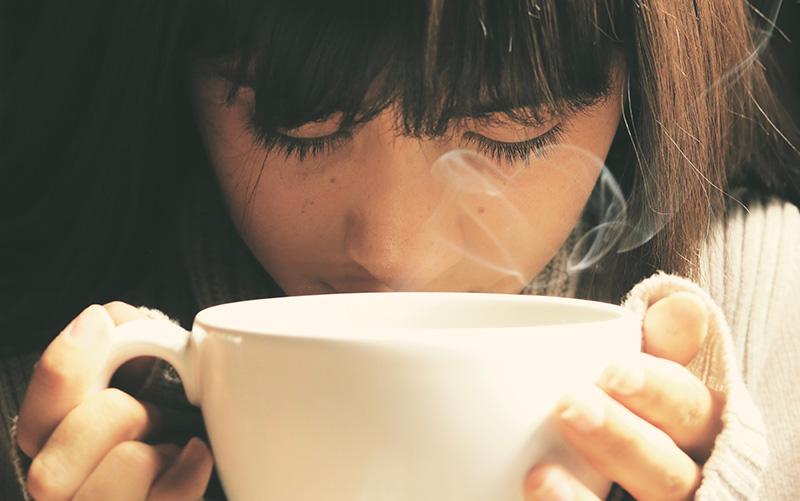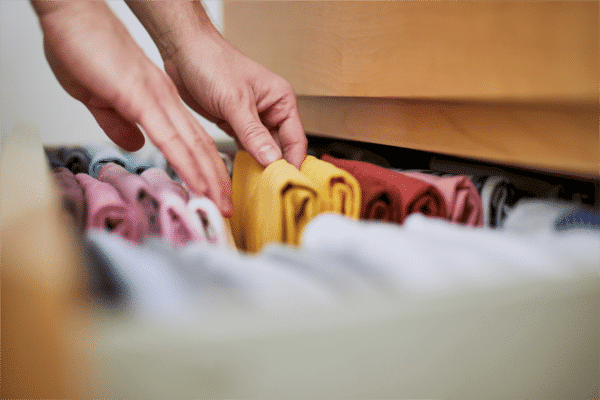
No sight is more common than someone enjoying this irresistible dark potion. After all, we gulp down more than 400 million coffee cups a day in the U.S. alone. And these numbers are merely a fraction of the 1.4 billion cups of Joe drunk every day on this planet! Still behind water and tea, but in the top 3 most consumed beverages worldwide. So, either during sluggish mornings or unending evenings, coffee is our problem-solving friend.
However enamored with this potion, we, the die-hard coffee drinkers, need to take a step backward and inquire more into this routine dynamic. After all, how often do you think about coffee’s effect on your health? And how does the daily cup of coffee influence your primary senses? Rest assured, we are not here to take your precious beverage away from you. Instead, we would like to help you expand your knowledge and learn how coffee works its wonders on two of our primary senses — smell and taste! So, therefore, curl up on your couch with a fresh pot (as Dave Grohl would call it) and join us in today’s adventure!

How Coffee Works on Our Brains
Not many of us think about how coffee “works” in our bodies; instead, we prefer to focus on the journey, the feeling, the nostalgia behind each sip. However, explaining the inexplicable behind the coffee experience requires a bit of knowledge on the science of this beloved beverage.
Right off the bat, the equation is simple – our bodies contain adenosine receptors. These neurotransmitters put you in the right physical state for sleep (e.g., they dilate the blood vessels for better oxygenation during sleep). That’s where caffeine comes into play; its job description is to bind to these adenosine receptors and impede them from ever sending the call to bed to the brain. The latter makes up for the lack of adenosine with added glutamate and dopamine, chemicals that make your brain happier. So what accompanies a happy brain? A better mood for you!
Although positive on paper, the binding process does not go unnoticed. Extensive research focused on regular coffee consumption points towards a twofold effect — on our senses of smell and taste. So what is the nature of this relationship? Is it productive, or should I say goodbye to my morning delight? Keep reading the following paragraphs to find out!
How Coffee Works on Our Sense of Smell
The human olfactory system is a fine-tuned machine. For example, although the general belief put the number of different scents around 10,000, more recent research concluded that the human nose could distinguish between over 1 trillion odors (talk about having a nose for something!). And think about how stronger our sense of smell becomes when we are sniffing a fresh pot of coffee brewing in the kitchen from our bedrooms! One could levitate and follow the irresistible smell, just like in old cartoons.
But what if we told you that coffee could grant you cognitive superpowers? Believe it or not, that is what researchers from the Stevens School of Business, Temple University, and Baruch College discovered. Their research tested the ability of over 100 students to answer math questions from the Graduate Management Admission Test (GMAT). The results were more than intriguing — the students who answered the questions in the coffee-smelling room performed significantly better than the rest of the students. Therefore, researchers concluded that the coffee fragrance alone is enough to enhance continuity of attention, quality and speed of memory, mood, and alertness.
Furthermore, the study analyzed the students’ performance when exposed to a caffeine-free coffee fragrance. The results were, once again, unexpected – the coffee fragrance, albeit devoid of caffeine, is enough to trigger the cognitive boost due to the coffee drinker’s preconceived expectation. Ergo, if you aim to become a cognitive superhero, always keep a fresh cup of Joe on sight; not only will your cognitive abilities improve, but your confidence will become unshakeable as well!

How Coffee Works on Our Sense of Taste
Although coffee is potent enough to endow math enthusiasts with superpowers, we can’t say the same about others, especially about those with a really sweet tooth. Quite a few of us indulge in regular guilty pleasures, frequently more often than necessary. And this trend shows in statistics — the average American consumes around 17 teaspoons of sugar per day, far exceeding the recommended limit. Clearly, sugar is the last thing that we need to add to our daily diets.
But what does this have to do with coffee? The last time we checked, coffee was quite bitter. It turns out that regular coffee consumption is correlated with increased sugar intake. Research shows that caffeine weakens the tongue’s taste buds, therefore messing up our perception of food tastes. For sweetness enthusiasts, weakened taste buds could cause an increase in sugary products to rediscover the much-craved sweet taste. Medical issues are only a step away from increased sugar intake, so we advise you to keep your sweet tooth in check after each cup of Joe.
Respect Coffee, and Coffee Will Respect You
Our Top Doctor Magazine team hopes that you will continue to enjoy this irresistible potion in a peaceful, responsible manner. We invite you to check out the following website on different coffee beans and flavors as a parting gift. May your coffee cups stay full, warm, and flavorful!





0 Comments